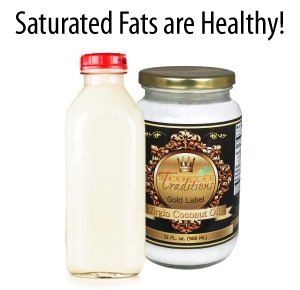
Health Impact News Editor Comments
The lipid theory of heart disease, linking saturated fat to coronary heart disease, continues to crumble. Of course there never was any real solid science linking traditional saturated fats and cholesterol to heart disease, but that didn’t stop the pharmaceutical companies from making billions of dollars from the sale of cholesterol-lowering drugs. Before the patent expired, Lipitor was the best selling drug of all time, nearly equaling the sales of all other drugs combined.
The biggest study to date examining the scientific literature on saturated fats was the meta analysis published in the American Journal of Clinical Nutrition in 2010: Meta-analysis of prospective cohort studies evaluating the association of saturated fat with cardiovascular disease. This analysis looked at 347,747 patients from clinical studies during a 23 year period and found that there was no link between saturated fat and heart disease.
Now, in May of 2013, we have another excellent study analyzing the existing medical literature regarding dietary fats and heart disease just published in Advances in Nutrition by Glen D. Lawrence, PhD, from the Department of Chemistry and Biochemistry at Long Island University in Brooklyn, NY: Dietary Fats and Health: Dietary Recommendations in the Context of Scientific Evidence
This analysis is significant because it not only looks at the differences of dietary oils classified as saturated fatty acids (SFA), monounsaturated fatty acids (MFA), or polyunsaturated fatty acids (PUFA), but also the ratios of Omega 3 (ω3) to Omega 6 (ω6) fatty acids contained within PUFAs. Older research had suggested that PUFAs had a lower risk of heart disease. But the science actually points to only Omega 3 fatty acids, such as those found in fish oils, as being heart healthy, and not Omega 6 fatty acids, such as those found in corn and soybean oil, which comprise more than 90% of the dietary oil market in the U.S.
The study also correctly vindicates the negative bias against saturated fat found in coconut oil and dairy products: “Several recent analyses indicate that SFAs, particularly in dairy products and coconut oil, can improve health.”
Here is the Abstract (link to PubMed)
Although early studies showed that saturated fat diets with very low levels of PUFAs increase serum cholesterol, whereas other studies showed high serum cholesterol increased the risk of coronary artery disease (CAD), the evidence of dietary saturated fats increasing CAD or causing premature death was weak. Over the years, data revealed that dietary saturated fatty acids (SFAs) are not associated with CAD and other adverse health effects or at worst are weakly associated in some analyses when other contributing factors may be overlooked. Several recent analyses indicate that SFAs, particularly in dairy products and coconut oil, can improve health. The evidence of ω6 polyunsaturated fatty acids (PUFAs) promoting inflammation and augmenting many diseases continues to grow, whereas ω3 PUFAs seem to counter these adverse effects. The replacement of saturated fats in the diet with carbohydrates, especially sugars, has resulted in increased obesity and its associated health complications. Well-established mechanisms have been proposed for the adverse health effects of some alternative or replacement nutrients, such as simple carbohydrates and PUFAs. The focus on dietary manipulation of serum cholesterol may be moot in view of numerous other factors that increase the risk of heart disease. The adverse health effects that have been associated with saturated fats in the past are most likely due to factors other than SFAs, which are discussed here. This review calls for a rational reevaluation of existing dietary recommendations that focus on minimizing dietary SFAs, for which mechanisms for adverse health effects are lacking.
Excerpts from the full study:
Numerous reports and reviews in recent years have begun to call the perceived pernicious effects of dietary saturated fatty acids (SFAs) into question. The purpose of this review is to summarize the scientific understanding as it relates to dietary fats in health and disease, particularly with regard to the innocuous nature of SFAs and the physiological effects that have implicated PUFAs in numerous disorders and diseases. The role of dietary fats in cardiovascular disease (CVD) and many other diseases is complex, yet there is a powerful inertia that has allowed the saturated fat doctrine to endure.
Studies of inflammation in rats have found that dietary manipulation of relative amounts of ω6 PUFA precursors can have profound effects on the degree of inflammation. Predominantly SFAs in the diet result in far less inflammation than diets with either ω3 or ω6 PUFAs. Several studies have shown that dietary supplementation with ω3 PUFAs can reduce inflammation and make patients less dependent on drug therapy to manage the pain and stiffness of arthritis. Patients should be advised to minimize their intake of ω6 oils when attempting ω3 supplementation as a therapeutic approach to reduce the inflammation of arthritis and other inflammatory syndromes. Small amounts of ω3 supplements in a sea of dietary ω6 oils would have relatively little chance of changing the course of an inflammatory response. Because dietary saturated fats do not promote inflammation, it may be wiser to minimize ω6 PUFAs and consume more SFAs to reduce various types of inflammation; most sources of MUFAs contain significant amounts of PUFAs as well. There have been few scientific studies along these lines because of the misguided concern that saturated fats, even those from vegetable sources such as palm and coconut oil, would be detrimental to one’s health.
The efficacy of ω3 supplements for inflammatory syndromes other than rheumatoid arthritis are less persuasive, although study designs are questioned regarding whether patients are advised to reduce their ω6 fatty acid intake. Fish oil supplements improved pulmonary function in some asthmatics (responders) but not in others (nonresponders). A relatively high ratio (10:1) of dietary ω6 to ω3 PUFAs resulted in diminished respiratory function in methacholine-provoked asthmatics, whereas a lower ratio (2:1) produced significant improvement in >40% of the study participants. A study in Japan showed beneficial effects of ω3 supplements in asthmatic children in a controlled hospital ward environment. A comparison of dietary saturated fats with polyunsaturated oils was not found in the literature for asthma studies. Such an approach would be logical for this life-threatening condition, in view of the benign nature of saturated fats and the fact that carbohydrates, especially sugars, may actually be augmenting the incidence of asthma.
Investigators often seem to have a particular bias against saturated fats.
A recent meta-analysis reviewed 20 studies with >1 million subjects and found that red meat was not associated with CAD events [RR = 1.00 (95% CI = 0.81–1.23, P-trend = 0.36)]. In contrast, processed meats were associated with increased incidence of CAD [RR = 1.42 (95% CI = 1.07–1.89, P-trend = 0.04)]. This indicates that saturated fat per se is not increasing CAD events, but other factors are, such as preservatives used in processed meats or other dietary substances that are being consumed in conjunction with processed meats. It is important to keep in mind that meats generally contain as much MUFA as SFA. Others are beginning to challenge the saturated fat hypothesis with closer analyses of past studies.
Campaigns were waged against tropical oils (palm and coconut oils) in the early 1980s because of their high levels of SFAs, even though palm oil contains about as much MUFAs acids as SFAs and has an ample amount of PUFAs to keep serum cholesterol low. In fact, 2 studies showed that the higher ratio of SFAs to MUFAs in palm oil (1.1:1) compared with olive oil (0.22:1) had no effect on serum lipids in healthy volunteers. Palm oil and olive oil have similar amounts (∼10%) of PUFAs. SFAs in coconut oil increase serum HDL-C more than LDL-C to give a more favorable lipid profile relative to dietary carbohydrates. Claims that tropical oils with a high SFA content increase the risk of CAD lack clear scientific evidence to that effect. Indeed, countries with high intake of tropical oils have some of the lowest rates of heart disease in the world.
Many of the shorter chain fatty acids found in milk fat and coconut oil have beneficial health effects. The shorter chain SFA in milk (C4–C12) are not only metabolized rapidly for energy in infants, but have been found to have important antiviral, antimicrobial, antitumor, and immune response functions. Lauric acid, which is present in milk and the most abundant fatty acid in coconut oil, is effective in preventing tooth decay and plaque buildup. Diets rich in coconut oils have also been shown to lower other risk factors for CAD, such as tissue plasminogen activator antigen and Lp(a). The medium-chain SFAs in coconut oil and butterfat (milk) increase total serum cholesterol, but their positive effects on HDL-C are protective in many ways. There is also evidence that proteins, fats, and calcium in milk are beneficial in lowering blood pressure, inflammation, and the risk of type 2 diabetes. Indeed, these constituents of milk have clear beneficial effects against metabolic syndrome, which is a major factor in promoting heart disease, as well as premature death from a variety of causes.
There has been a spate of recent publications in the biomedical literature that question the negative perception that dairy fats are bad for health. One meta-analysis showed that participants in prospective studies with the highest consumption of dairy products had a lower RR for all-cause mortality as well as for CAD, stroke, and diabetes compared with the lowest intake of dairy products. Many of the studies included in the analysis started before low-fat milk was available on the market. Another review arrived at the same conclusion that consumption of dairy products is not associated with higher risk of CVD. Although prospective cohort studies often find a significant reduction in the incidence of CAD with a larger ratio of PUFAs to SFAs in the diet, there are often many other factors related to overall health that correlate with the unsaturated to SFA ratio, such as exercise, a healthier lifestyle, and more fiber and less sugar in the diet.
Conclusions
Saturated fats are benign with regard to inflammatory effects, as are the MUFAs. The meager effect that saturated fats have on serum cholesterol levels when modest but adequate amounts of polyunsaturated oils are included in the diet, and the lack of any clear evidence that saturated fats are promoting any of the conditions that can be attributed to PUFA makes one wonder how saturated fats got such a bad reputation in the health literature.
Read the Full article (with 133 references) for free here: http://advances.nutrition.org/content/4/3/294.long
Virgin Coconut Oil:
How it has changed people’s lives and how it can change yours!
Includes 85 recipes – Free shipping available!




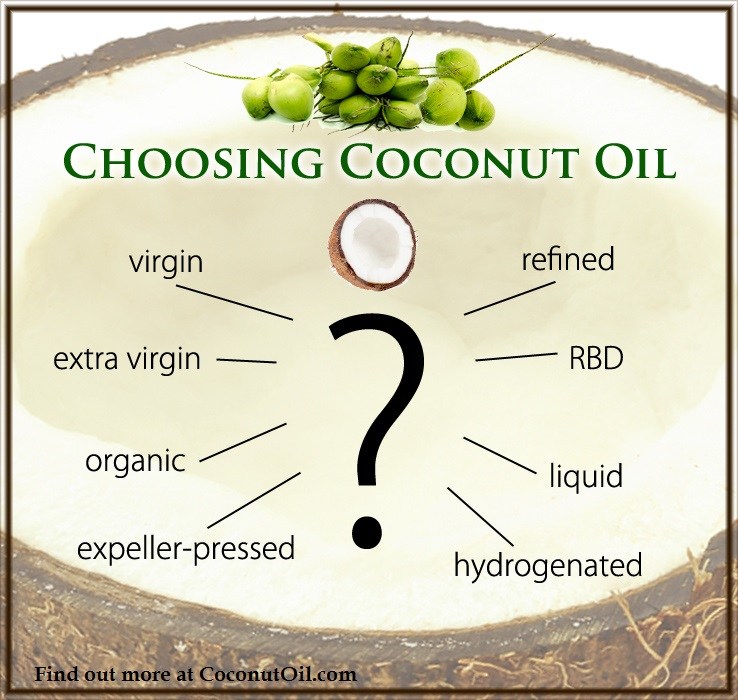

 The FDA has NOT Banned Trans Fats! Traditional Saturated Fats like Coconut Oil Continue to Shine for Alzheimer's Disease but are Condemned by U.S. Dietary Advice
The FDA has NOT Banned Trans Fats! Traditional Saturated Fats like Coconut Oil Continue to Shine for Alzheimer's Disease but are Condemned by U.S. Dietary Advice The Evidence of Coconut Oil's Superiority Over Drugs in Destroying Pathogens Continues to be Published in Peer-Reviewed Journals
The Evidence of Coconut Oil's Superiority Over Drugs in Destroying Pathogens Continues to be Published in Peer-Reviewed Journals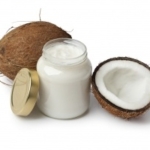 Study: Virgin Coconut Oil Protects Neuronal Damage and Mortality after a Stroke Incidence
Study: Virgin Coconut Oil Protects Neuronal Damage and Mortality after a Stroke Incidence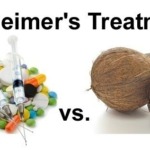 Another Phase 3 Trial Failure to Develop an Alzheimer's Drug Shows Why Virgin Coconut Oil is Needed to Prevent Dementia
Another Phase 3 Trial Failure to Develop an Alzheimer's Drug Shows Why Virgin Coconut Oil is Needed to Prevent Dementia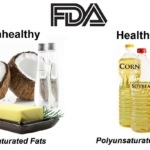 FDA Food Police want to Dictate What Foods are "Healthy" in New Guidelines Criminalizing Traditional Fats Like Butter and Coconut Oil
FDA Food Police want to Dictate What Foods are "Healthy" in New Guidelines Criminalizing Traditional Fats Like Butter and Coconut Oil